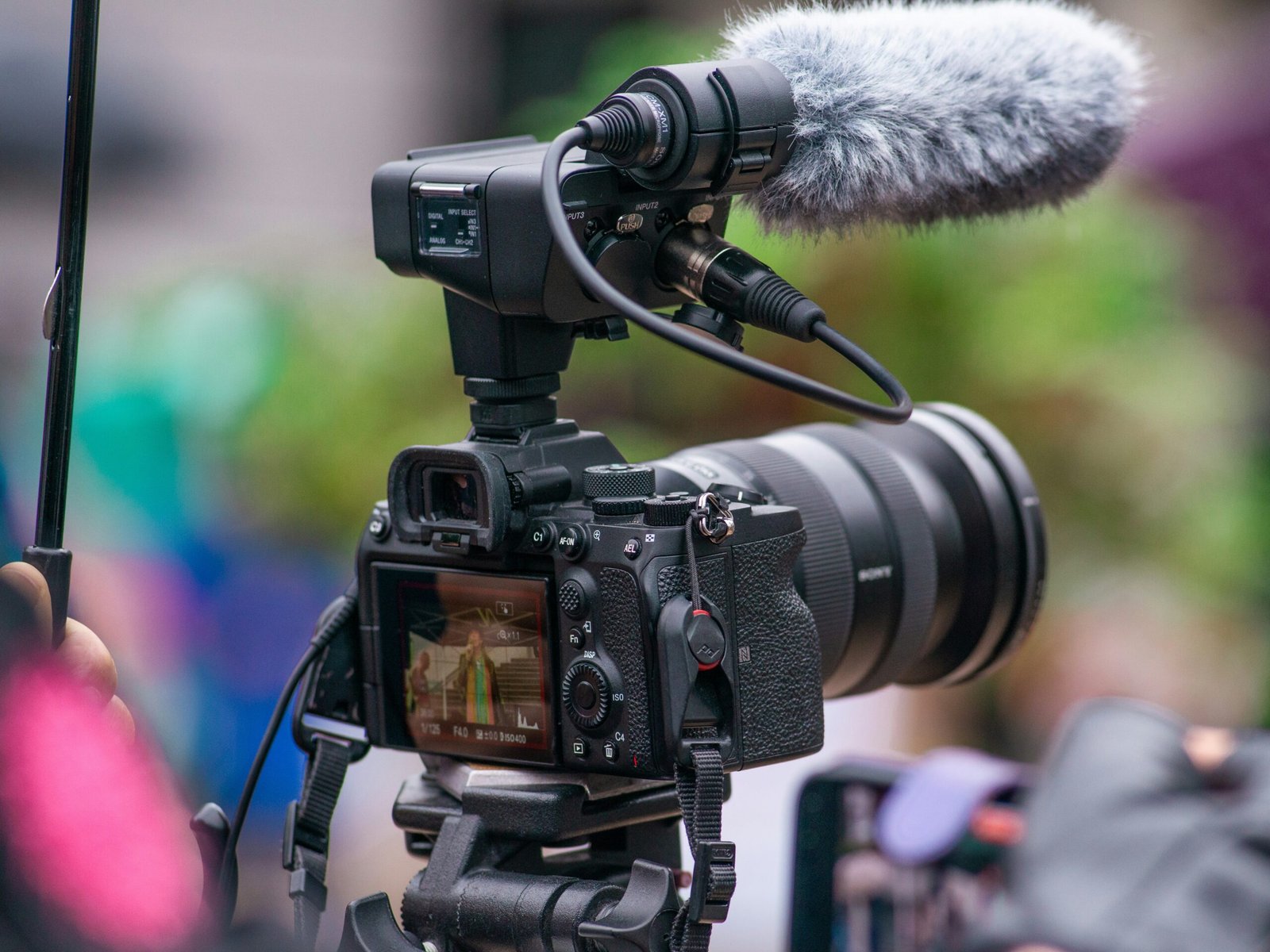
One of the key roles of the media in current politics is its ability to disseminate information to the public. Through various mediums such as television, radio, newspapers, and online platforms, the media provides citizens with access to news and current affairs. This enables individuals to stay informed about the latest political developments and make informed decisions.
Moreover, the media acts as a watchdog, holding politicians and government officials accountable for their actions. Investigative journalism plays a vital role in exposing corruption, scandals, and unethical behavior within the political sphere. By uncovering and reporting on such issues, the media helps to ensure transparency and accountability in government.
Furthermore, the media serves as a platform for political debate and discussion. Through news programs, talk shows, and opinion pieces, different perspectives and ideologies are presented, allowing citizens to engage in critical thinking and evaluate different policy proposals. This not only fosters a more informed electorate but also promotes democratic values and participation.
In addition, the media plays a significant role in shaping public opinion. The way news is presented and the framing of stories can influence how the public perceives political events and individuals. Media bias, whether intentional or unintentional, can sway public opinion in favor of or against certain political figures or parties. This highlights the importance of media literacy, as it allows individuals to critically analyze and evaluate the information they consume.
Furthermore, social media platforms have revolutionized the way political information is shared and consumed. With the advent of platforms like Facebook, Twitter, and Instagram, politicians can directly communicate with their constituents, bypassing traditional media channels. This has both positive and negative implications, as it allows for more direct engagement between politicians and the public, but also raises concerns regarding the spread of misinformation and the echo chamber effect.
In conclusion, the media plays a multifaceted role in current politics. From providing information and holding politicians accountable to shaping public opinion and facilitating political discourse, the media has a significant impact on the political landscape. As citizens, it is essential to be critical consumers of media and actively engage in the democratic process to ensure a well-informed and vibrant political environment.
One of the primary roles of the media in politics is to inform the public. Journalists and news organizations are responsible for reporting on political events, policies, and debates, providing citizens with the information they need to make informed decisions. Through news articles, television broadcasts, and online platforms, the media acts as a watchdog, holding politicians accountable and ensuring transparency in the political process.
However, it is important to note that the media’s role in informing the public is not without its challenges. In an era of “fake news” and misinformation, it is crucial for journalists to uphold ethical standards and provide accurate and unbiased reporting. The media’s influence on public opinion is only effective if it is based on reliable and factual information.
With the rise of social media and the proliferation of online news sources, the public has access to an overwhelming amount of information. This abundance of sources can make it difficult for individuals to discern fact from fiction, truth from propaganda. It is therefore incumbent upon journalists to not only report the news but also to verify its accuracy and provide context to help the public understand the complexities of political issues.
Furthermore, the media plays a vital role in highlighting the diverse perspectives and voices within the political landscape. By giving a platform to various stakeholders, journalists can foster a more inclusive and democratic discourse. This means not only reporting on the views of political leaders but also amplifying the voices of marginalized communities, grassroots organizations, and experts in relevant fields.
Moreover, the media’s role in informing the public extends beyond just reporting the news. It also involves investigative journalism, where journalists delve deep into issues, uncovering corruption, exposing wrongdoing, and holding those in power accountable. This form of journalism is essential for a functioning democracy, as it helps to expose abuses of power and ensures that those responsible are held to account.
In conclusion, the media’s role in informing the public is crucial for a healthy democracy. Journalists and news organizations have the responsibility to provide accurate, unbiased, and reliable information to citizens. By doing so, they empower individuals to make informed decisions, hold politicians accountable, and participate actively in the political process. However, in an era of misinformation and fake news, it is imperative for journalists to uphold ethical standards and verify the accuracy of their reporting. Only then can the media effectively fulfill its role in informing the public.
Setting the Agenda
Another significant role of the media in politics is setting the agenda. Journalists and news organizations have the power to determine which issues and topics receive the most attention and coverage. By selecting what to report on and how to frame the narrative, the media has the ability to shape public discourse and influence the political agenda.
For example, during election campaigns, the media often focuses on specific policy issues or scandals, which can impact public opinion and sway voters. The media’s ability to set the agenda can have a significant impact on the outcome of elections and the priorities of political leaders.
Furthermore, the media’s role in setting the agenda extends beyond elections. News outlets have the power to highlight certain social or economic issues, bringing them to the forefront of public consciousness. This can lead to increased awareness and public pressure for action on these issues.
For instance, when the media extensively covers stories related to climate change and its impact on the environment, it generates public interest and concern. As a result, policymakers may be more inclined to address these issues and develop policies to mitigate the effects of climate change.
Moreover, the media’s agenda-setting role can also influence the public’s perception of certain individuals or groups. By consistently covering stories that portray a particular person or organization in a positive or negative light, the media can shape public opinion and influence public attitudes.
For example, if the media consistently portrays a political candidate as corrupt or dishonest, it can create a negative perception of that candidate among the public. This can ultimately impact the candidate’s chances of winning an election.
On the other hand, the media can also help shape public opinion in a positive way. By highlighting the accomplishments and positive actions of individuals or organizations, the media can inspire and mobilize the public to support certain causes or initiatives.
Overall, the media’s ability to set the agenda plays a crucial role in shaping public opinion, influencing political decisions, and driving social change. The responsibility lies with journalists and news organizations to use this power ethically and responsibly, ensuring that the issues receiving attention are those that truly matter and deserve public scrutiny.
Political Bias and Partisanship
One of the most debated aspects of the media’s role in politics is its potential for bias and partisanship. Critics argue that certain news organizations have inherent biases that can influence their reporting and coverage. This can lead to a lack of objectivity and the promotion of specific political ideologies.
While it is true that some media outlets may have biases, it is essential to recognize that not all journalists or news organizations are the same. Many journalists strive to maintain neutrality and provide balanced reporting. It is crucial for consumers of news to be discerning and seek out multiple sources to get a comprehensive understanding of political events and issues.
However, the presence of bias and partisanship in the media cannot be entirely dismissed. In today’s highly polarized political climate, news outlets are often accused of favoring one political party or ideology over another. This can be seen in the way certain stories are framed, the selection of sources, and the emphasis given to particular viewpoints.
For example, a news organization with a conservative bias may focus more on stories that align with conservative values and downplay or ignore those that challenge them. Similarly, a news outlet with a liberal bias may do the same but in favor of liberal ideologies. These biases can shape public opinion and contribute to the deepening divide between political factions.
Moreover, the rise of social media and online news platforms has further exacerbated the issue of bias and partisanship. With the advent of personalized news feeds and algorithms that cater to individual preferences, people are increasingly exposed to content that aligns with their existing beliefs. This creates echo chambers where individuals are less likely to encounter opposing viewpoints and are more susceptible to confirmation bias.
As a result, the media landscape has become increasingly fragmented, with different news outlets catering to specific ideological leanings. This has led to the phenomenon of “fake news” and the erosion of trust in traditional media sources. People are now more likely to seek out news that confirms their preconceived notions rather than challenging them, further deepening the divide between political factions.
In conclusion, while many journalists and news organizations strive for objectivity and balance, the presence of bias and partisanship in the media cannot be ignored. In a highly polarized political climate, it is crucial for consumers of news to be discerning and seek out multiple sources to get a comprehensive understanding of political events and issues. Additionally, efforts should be made to promote media literacy and critical thinking skills to combat the influence of biased reporting and the fragmentation of the media landscape.
Public Opinion and Political Campaigns
The media’s influence on public opinion is particularly evident during political campaigns. Candidates and political parties heavily rely on the media to reach and connect with voters. Through interviews, debates, and campaign advertisements, the media helps shape public perception of candidates and their policies.
Furthermore, the media plays a significant role in mobilizing and galvanizing support for political causes. Social media platforms have become powerful tools for political campaigns, allowing candidates to reach a wide audience and engage with voters directly. The media’s coverage of political rallies, speeches, and endorsements can have a substantial impact on the success or failure of a campaign.
However, it is important to recognize that the media’s influence on public opinion is not solely determined by the content it presents. The way in which the media frames and presents information can also shape public perception. The media has the power to highlight certain aspects of a candidate’s platform while downplaying others, ultimately influencing how voters perceive their policies and qualifications.
Moreover, the media’s role in political campaigns extends beyond simply shaping public opinion. It also serves as a watchdog, holding candidates accountable for their actions and statements. Journalists investigate and report on the backgrounds and track records of candidates, bringing to light any inconsistencies or controversies. This scrutiny can have a significant impact on a candidate’s credibility and public perception.
Additionally, the media’s coverage of political campaigns can have a ripple effect on voter turnout and political engagement. When the media highlights the importance of an election or the potential consequences of certain policies, it can motivate individuals to participate in the democratic process. On the other hand, negative media coverage or a lack of attention to certain issues can discourage voter turnout and contribute to political apathy.
Overall, the media’s influence on public opinion during political campaigns is multi-faceted and complex. It not only shapes public perception of candidates and their policies but also plays a crucial role in mobilizing support, holding candidates accountable, and influencing voter engagement. As such, it is essential for both voters and candidates to critically analyze and evaluate the media’s role in order to make informed decisions and foster a healthy democratic society.
The Role of Social Media
In recent years, the emergence of social media platforms has revolutionized the media landscape and transformed the way politics is conducted. Social media platforms such as Facebook, Twitter, and Instagram have become essential tools for political communication and engagement.
Politicians and political parties use social media to connect with voters, share their message, and mobilize support. They can now directly interact with their constituents, addressing their concerns and answering their questions in real-time. This direct line of communication has made politics more accessible and transparent than ever before.
Moreover, social media platforms have given rise to citizen journalism, allowing individuals to report on political events and share their perspectives directly with a global audience. This has democratized the media landscape, challenging traditional news outlets and giving a voice to marginalized groups. Social media has become a powerful tool for activism, enabling grassroots movements to gain momentum and mobilize support.
However, the role of social media in politics is not without its challenges. The spread of misinformation and the echo chamber effect, where individuals are only exposed to ideas that align with their own, are significant concerns. With the vast amount of information available on social media, it is crucial for users to critically evaluate the information they encounter and seek out reliable sources. Fact-checking and media literacy have become essential skills in the digital age.
Furthermore, social media platforms have also been criticized for their role in spreading hate speech and inciting violence. The ease with which inflammatory content can be shared and amplified on these platforms has raised concerns about the potential for social media to exacerbate political polarization and contribute to social unrest.
Despite these challenges, social media remains a powerful tool for political engagement and mobilization. It has the potential to amplify marginalized voices, hold politicians accountable, and foster democratic participation. However, it is essential for users to approach social media with a critical mindset and actively seek out diverse perspectives to ensure a well-rounded understanding of political issues.



